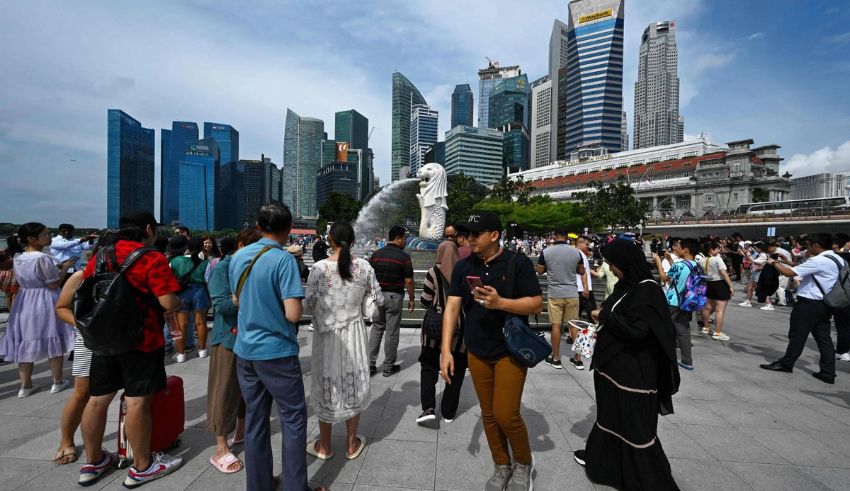

(C) South China Morning Post
Singapore has announced that it will accept the Chinese yuan as a payment option for tourists visiting the city-state, in a move that could boost its tourism sector and reduce its reliance on the US dollar.
The decision, which will take effect from January 2024, was made after consultations with the Chinese government and the BRICS group of emerging economies, which includes Brazil, Russia, India, China and South Africa.
Singapore is the first Southeast Asian country to adopt the yuan for tourism payments, following the examples of Argentina and Brazil, which have also agreed to trade with China in its local currency¹².
According to the Singapore Tourism Board, the yuan payment option will be available at major hotels, attractions, shopping malls and restaurants that cater to Chinese visitors, who make up the largest source of tourists for Singapore.
The board said that the initiative will provide more convenience and choice for Chinese tourists, who will be able to use their mobile wallets or bank cards to pay in yuan, without having to worry about exchange rates or fees.
The move will also benefit Singaporean businesses, as they will be able to receive yuan payments directly, without having to convert them to Singapore dollars or US dollars, which could incur losses due to currency fluctuations.
Singapore’s Minister for Trade and Industry, Chan Chun Sing, said that the adoption of the yuan for tourism payments is part of Singapore’s efforts to diversify its economic ties and strengthen its position as a regional hub for trade and finance.
He said that Singapore supports the internationalization of the yuan, as it will enhance the stability and resilience of the global financial system, and create more opportunities for cooperation and growth among the BRICS countries and beyond³.
The yuan has been gaining popularity as an alternative to the US dollar in recent years, as China has been promoting its use in cross-border trade and investment, especially with its partners in the BRICS group and the Belt and Road Initiative.
According to the International Monetary Fund, the yuan accounted for 2.1% of global foreign exchange reserves and 1.9% of global payments in the fourth quarter of 2022, up from 1.8% and 1.6% respectively in the same period in 2021⁴.
The US dollar, meanwhile, has been facing challenges from the rising geopolitical tensions between the US and its rivals, such as China and Russia, as well as the economic fallout from the COVID-19 pandemic.
Some analysts have warned that the US dollar could lose its status as the dominant reserve currency in the future, as more countries seek to reduce their dependence on it and diversify their portfolios with other currencies, such as the yuan, the euro and the gold.
BLACKPINK is planning their fourth concert tour across the globe and their brand-new album for release in 2025. Member Lisa…
The 2024-2025 BOC Life Hong Kong Premier League is a different league which is structured with triple-round robin competition every…
On May 5th the 2025 Met Gala will glitter the world through its return to The Metropolitan Museum of Art…
‘Children’s Day’ is celebrated annually on 5 May in South Korea, on this day across the nation many campaigns, creative…
May is one of the crucial financial months in a year, if you have any important transactions or any official…
If you happen to breathe K-drama, then your 'May 2025' will most likely be well-rendered into a month! Romantic sagas,…
This website uses cookies.
Read More